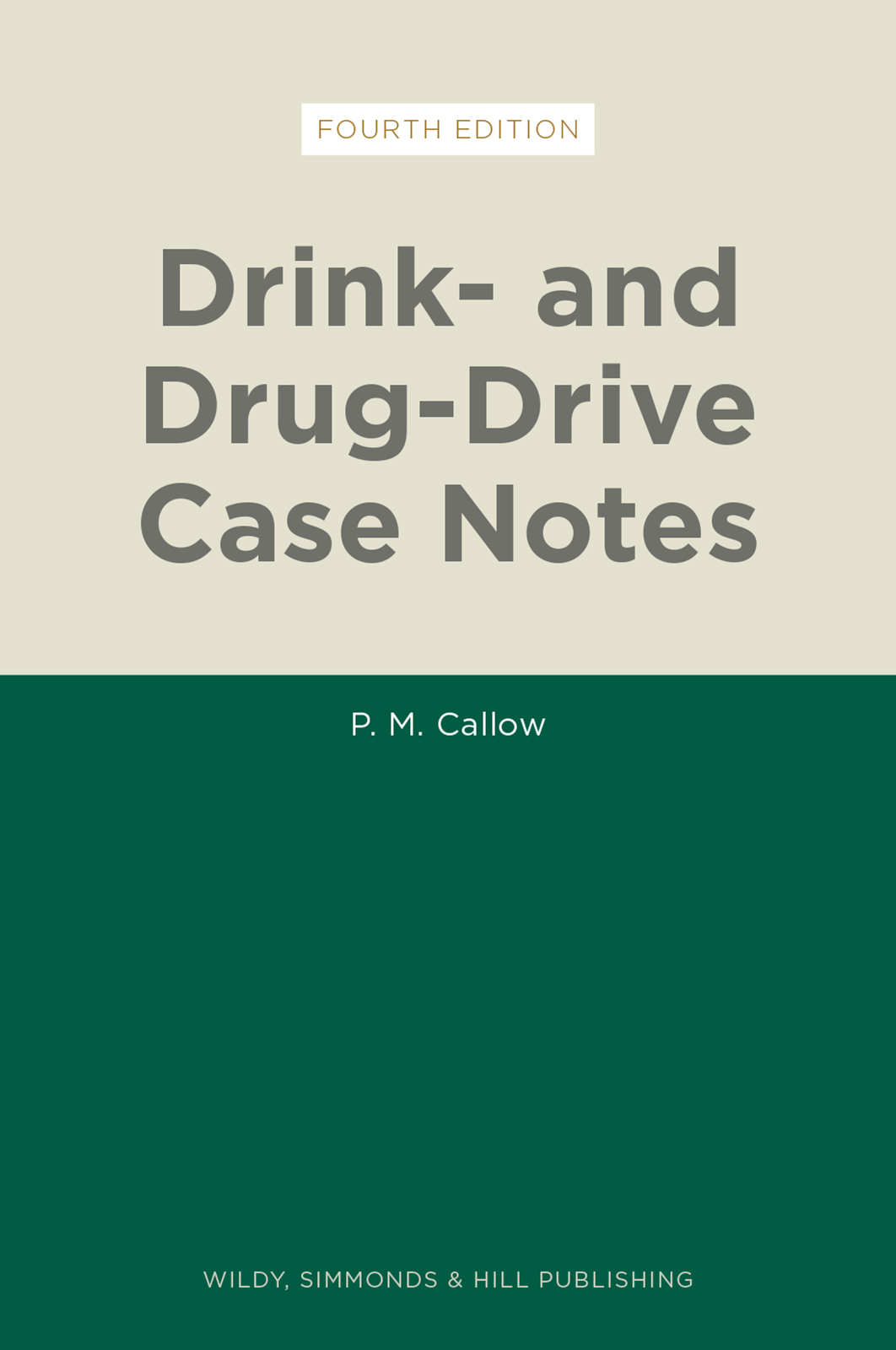
"this book is extremely useful when defending or prosecuting cases involving drink or drug driving.” Law Society Gazette (from review of 3rd edition).
Drink- and Drug- Drive Case Notes comprises summaries of the many cases on the drink- and drug- driving offences which have come before the higher courts. Over 600 judgments are summarised. Each note is presented as a headnote summarising the ratio of the case, a short statement of the facts, the issue(s) in the appeal and an extract from the judgment. The notes are intended to provide a broad outline of the trends in the case law and as starting points for readers seeking guidance on particular points.
The work is divided into chapters which follow, broadly, the stages in an investigation: the requirement to provide specimens of breath, blood or urine; the offence of failing without reasonable excuse to cooperate or to provide specimens; challenges to the breath testing and breath analysis devices; the “statutory assumption” that the proportion of alcohol or a drug at the time of the offence was not less than in the specimen; evidence, including issues such as the admissibility of the printout from the breath analysis device and of the contemporaneous records of the procedure completed by the investigating officer; the discretion under PACE to admit or exclude evidence; definitions, notably of “public place”; defences, including no likelihood of driving while over the limit; special reasons for not disqualifying; and a host of procedural issues, featuring the courts’ insistence on compliance with the Criminal Procedure Rules.
This fourth edition includes notes of over fifty cases decided since the third edition was published. Themes running through the new cases include the availability of judicial review as a means of challenge, case management, the appropriateness of adjournments and preparedness for trial. Longer-standing issues have also been re-visited: the disclosure of records, consulting the forms completed during the investigation to refresh memory at trial, the discretion to admit or exclude evidence and burdens of proof.